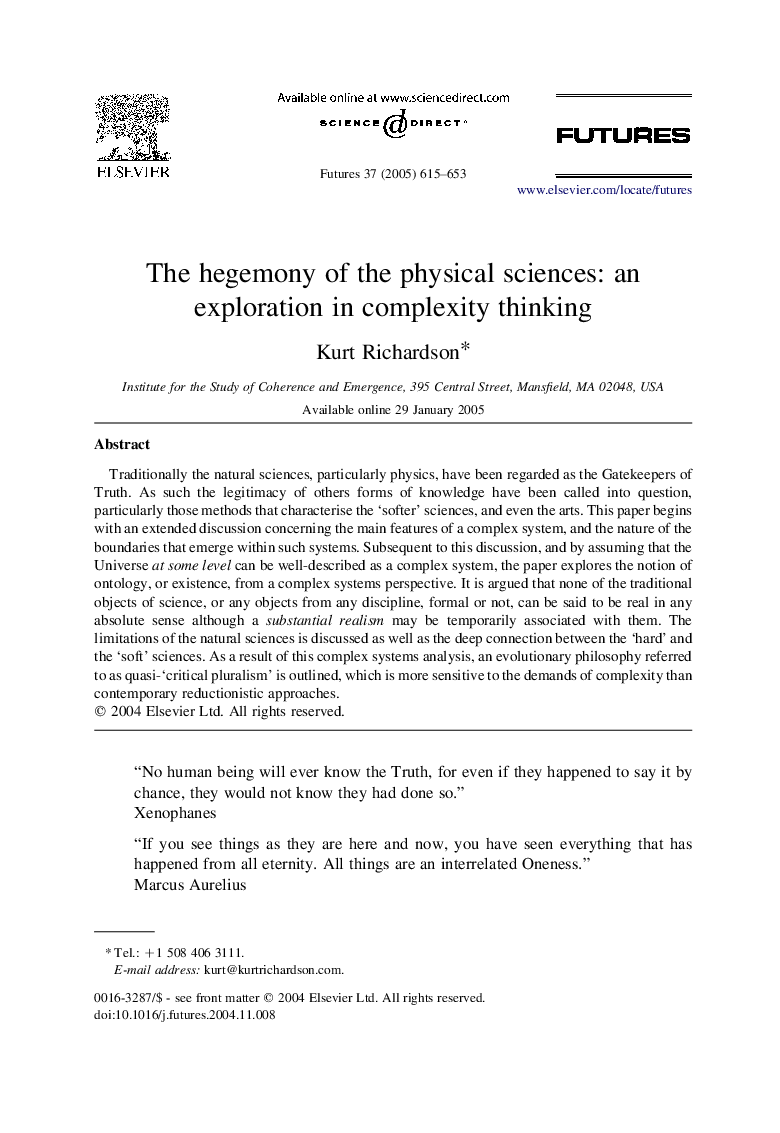| Article ID | Journal | Published Year | Pages | File Type |
|---|---|---|---|---|
| 10492133 | Futures | 2005 | 39 Pages |
Abstract
Traditionally the natural sciences, particularly physics, have been regarded as the Gatekeepers of Truth. As such the legitimacy of others forms of knowledge have been called into question, particularly those methods that characterise the 'softer' sciences, and even the arts. This paper begins with an extended discussion concerning the main features of a complex system, and the nature of the boundaries that emerge within such systems. Subsequent to this discussion, and by assuming that the Universe at some level can be well-described as a complex system, the paper explores the notion of ontology, or existence, from a complex systems perspective. It is argued that none of the traditional objects of science, or any objects from any discipline, formal or not, can be said to be real in any absolute sense although a substantial realism may be temporarily associated with them. The limitations of the natural sciences is discussed as well as the deep connection between the 'hard' and the 'soft' sciences. As a result of this complex systems analysis, an evolutionary philosophy referred to as quasi-'critical pluralism' is outlined, which is more sensitive to the demands of complexity than contemporary reductionistic approaches.
Related Topics
Social Sciences and Humanities
Business, Management and Accounting
Business and International Management
Authors
Kurt Richardson,
